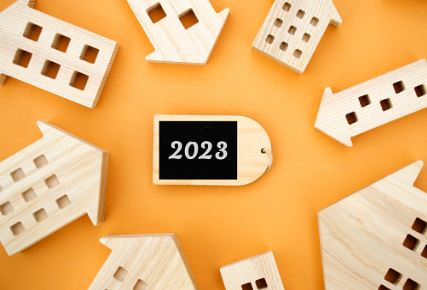Like every market, real estate is subject to specific forces that affect demand and supply. Consequently, these forces also play a role in determining the average buying, selling, and leasing costs of a rental property.
Thus whether you’re a landlord looking to invest in real estate, or a tenant searching for your next home, it would be in your best interest to understand the factors affecting rental rates in 2023. If you’d like to know how the market influences prices, stick around till the end of this article.
Factors Affecting Rental Rates in 2023
- Location
One of the principal factors driving rental rates in 2023 is location, and we can trace its influence to the pandemic of 2020. Following the lockdown, several businesses adopted a hybrid or fully remote work model, allowing their employees to reevaluate proximity to work as a priority. Thus, apartment rates in urban cities are dropping as they witness a mass exodus. On the other hand, prices of SFUs in the suburbs are steadily climbing.
- Inflation
With inflation around the corner, the population’s cost of living has risen significantly, making buying a luxury. However, one survey by Zumper showed that rent prices for houses across the country continue to fall as many people postpone the dream of becoming homeowners. Some residents are even downsizing as they cannot meet their landlords’ demands. You can hire rental experts to help determine a fair rental rate to avoid your tenants moving out.
- Interest Rates
Besides inflation rates spiking, interest rates will also play a role in setting rental prices in 2023. With the Federal Reserve pulling away support for low-cost loans, borrowing is much more expensive than it was just after the pandemic. As such, fewer investors in the pool are looking to buy houses, crashing home prices and rental rates as the economy contracts.
- Number of Bedrooms
Although home prices are dropping, houses with more bedrooms are more resistant to the crash. A home with more space allows families and roommates to share the rent and cost of living instead of one-bedroom apartments. Even homeowners with two bedrooms or more are letting out their extra rooms or guest houses for a little more cash.
What Should Be Considered When Choosing a Rental Home
- Location
As we highlighted earlier, property owners in the suburbs are due to make more profits as the population migrates away from cities. Thus, buying a home in a highly desirable neighborhood can help you secure a wider profit margin even on a single-bedroom apartment.
For tenants, location is also integral because you have to consider proximity to school and work. Besides, districts that pay a hefty fine in property taxes are more likely to be expensive as landlords shift the cost over to their renters.
- Accessibility
Accessibility to social amenities should be a high priority for landlords and tenants. Houses with good walkability scores are more likely to attract renters as they can save more money locomoting to services like restaurants, laundromats, gyms, parks, supermarkets, and bus stops. Proximity to such services should come into consideration when pricing a rental property. Neighborhoods with a higher walking score allow tenants to complete their daily chores without much hassle and thus are often higher. Of course, as a landlord in an upcoming area, you shouldn’t discount your rental prices if there’s potential for growth in a few months to a year.
- In-house facilities
Besides amenities off the premises, in-house facilities are another factor to consider when choosing a rental home. As a tenant, you should ask if there are perks like parking, a swimming pool, surveillance cameras in-building washer and dryer, and other similar facilities. These additions can make your home more conducive and safer and save you some extra cash.
On the other hand, landlords can charge higher rent for these facilities because they’re often in high demand for renters. It also helps you stay ahead of the competition, which can reduce your vacancies. Thus, consider tacking on these upgrades to attract more people.
- Crime Rate
Neighborhoods with a high crime rate are generally unsafe, and many people tend to flee these areas if they can afford them. Besides protecting their property and lives, many tenants would gladly pay a few hundred dollars more for the same apartment in a safer environment.
Besides higher tenant turnover, investing in real estate in a high crime-rate neighborhood can incur other costs. For example, your house may be subject to recurrent vandalism or burglary attacks and require tighter, more expensive home security systems.
Conclusion
That’s a wrap on the factors affecting rental rates in 2023. We hope you found this article helpful in explaining the forces that are and will influence rental prices in the coming months. If you need more help reflecting on these factors and setting fair rental prices as a landlord, you should consult an expert. A professional property management company can ensure you responsible tenants willing to take your units at a fair rate.


